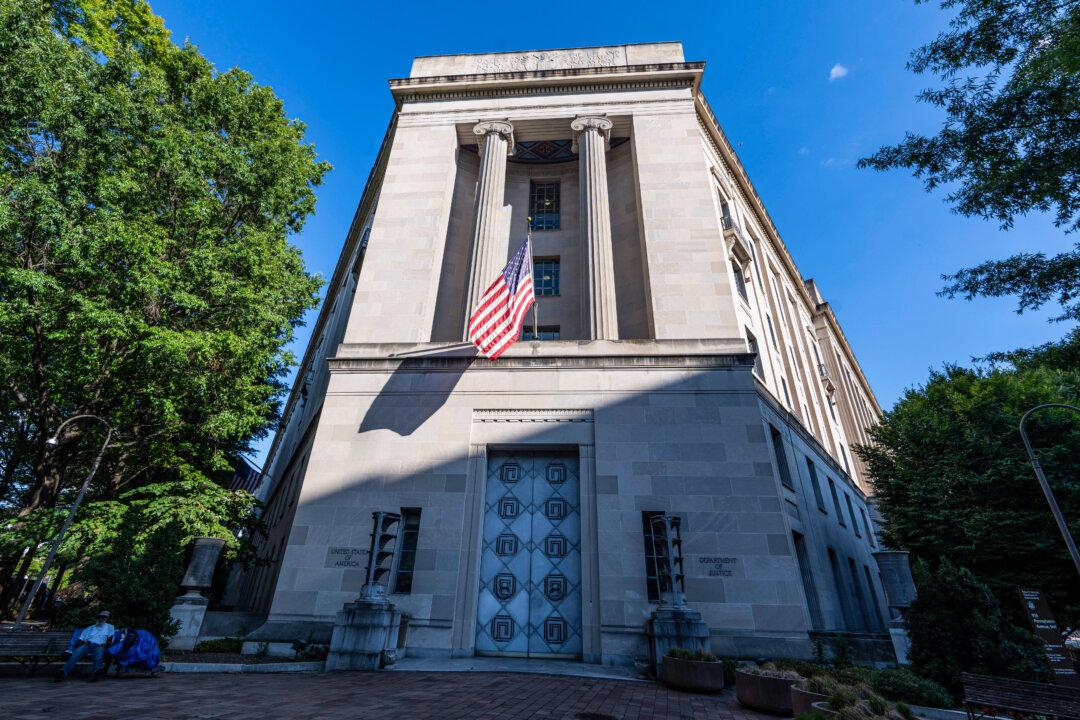The FBI said Chinese espionage efforts are a ‘grave threat’ to the United States.

A Chinese dissident living in New York City has been charged for allegedly acting as a spy for the Chinese regime’s intelligence agency, according to the Department of Justice (DOJ).
In a sworn deposition, FBI special agent Joshua Ray Willis stated that Tang was a Chinese agent from 2018 to at least June 2023, and during that time completed “tasks” at the direction of China’s top intelligence agency, the Ministry of State Security (MSS).
Willis detailed Tang’s path from dissident to spy, stating that based on his investigation, he believes Tang was searching for a way to visit family in mainland China in 2018, and was recruited to work for the MSS.
In 2002, Tang defected to Taiwan and was granted political asylum in the United States, where he continued to participate in demonstrations against the CCP, including monthly protests in front of the Chinese Consulate in Manhattan.
When Tang attempted to visit family in China in 2018, “an acquaintance then arranged Tang’s virtual introduction to MSS Officer-1,” connecting them with a password-protected email account, according to the court filing.
Tang continued his pro-democracy and anti-CCP activities after he began taking instructions from the MSS officer. He was a prominent figure in the Chinese dissident community and chaired a branch of the Chinese Democracy Party in Queens.
Tang allegedly communicated with the MSS officer by leaving draft emails in the account and through phone calls, video calls, and audio and text messages. According to Willis, Tang had face-to-face meetings with members of the MSS at least three times, twice in Macau and once in mainland China, and was subjected to a polygraph while sharing information he had collected at least once.
According to Willis, Tang collected information on Chinese dissidents, pro-democracy events in the United States, and U.S.-based immigration lawyers. This included setting up a group chat made up of about 140 people, including confirmed Chinese dissidents and the MSS officer, and recording a large Zoom conference with Chinese dissidents in the United States, Taiwan, and Germany in June 2020 commemorating the anniversary of the Tiananmen Square massacre.
“The 2020 Zoom Call was repeatedly disrupted by the PRC government and then suddenly ended,” the affidavit reads.
From Willis’s interviews with Chinese dissidents in the group chat, the FBI learned that one of the members of the group chat who wrote criticisms of the CCP learned around June 2023 that one of his relatives in China was approached by a CCP official who instructed the relative to tell the dissident “not to say anything against the CCP or the Ministry of Public Security.”
According to Willis, Tang accepted payments from the MSS, which also made payments to Tang’s family members residing in mainland China.
Tang was also given a cellphone installed with a “bug” that transferred data back to the MSS officer, the document alleges.
Law enforcement authorities recovered instructions that Tang had received from the MSS, as well as photographs, videos, and documents that he either collected or created to be sent to the Chinese intelligence agency.
The DOJ alleged that Tang made false statements to the FBI when he claimed he could no longer access the email account he had used to communicate with his MSS handler.
Tiananmen Square and Tang
In May 1989, Tang participated in a peaceful demonstration of thousands of factory workers in Changchun city in support of students participating in a hunger strike demonstration in Beijing.
On June 4, 1989, China’s communist regime ordered its troops to open fire on student protesters and unarmed civilians at Tiananmen Square in China’s capital. The CCP denies having initiated a violent campaign of suppression, and any discussion about the protest movement is considered taboo in China and Hong Kong.
After learning of the student massacre in Beijing, thousands of factory workers in Changchun led a march on June 6 and then participated in a rally that grew to about 10,000 people.
Tang was arrested a few days later, on June 10. He was found guilty on two charges, “organizing and leading a counter-revolutionary group” and “carrying out counter-revolutionary propaganda and agitation,” according to the report.
Tang couldn’t claim asylum in Taiwan because of the island’s lack of an asylum law, the outlet said, and the American Institute in Taiwan, the de facto U.S. Consulate, agreed to grant Tang political asylum.
https://www.theepochtimes.com/china/doj-arrests-charges-prominent-chinese-dissident-for-spying-for-beijing-5710859?ea_src=ca-frontpage&&ea_med=top-news-top-stories-6-title-0


No comments:
Post a Comment